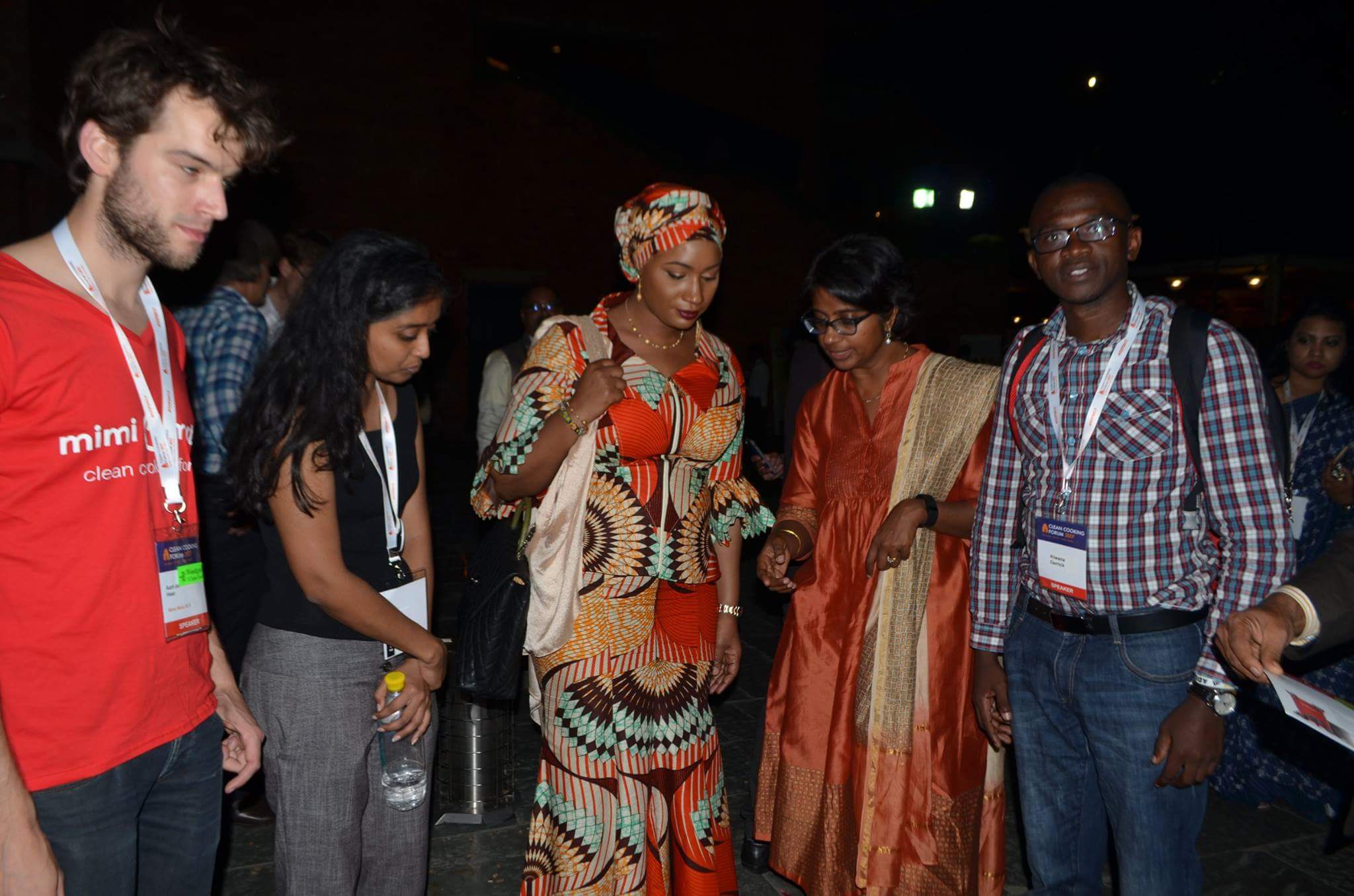CREEC ATTENDS THE 2017 CLEAN COOKING FORUM IN NEW DELHI
CREEC’s Derrick Kiwana alongside the Second lady of the Republic of Ghana, H.E Samira Bawumia and the CEO Global Alliance for Clean Cookstoves, Ms Radha Mutiah.
From 24th to 26th October 2017, an informative clean cooking Forum was held in new Delhi at the Indian habitat Centre. The forum was under the theme, “Driving Demand, Delivering Impact.” This marked an important milestone for the Global Alliance for Clean Cookstoves and the cooking sector as the world celebrated the impressive strides of a cleaner and more efficient cooking sector. The forum attracted a number of stakeholders from all parts of the world and the Centre for Research in Energy and Energy Conservation was among the representatives from Uganda. Alongside the Global Alliance for Clean Cookstoves, the occasion was graced by a number of hosts who included, Tata Trusts, TERI and CLEAN with support from NITI Aayong all of which a based in India.
The forum brought together over 500 global leaders and practitioners from business, finance, civil society, the UN government and academia to share best practices, explore innovative approaches, finance mechanisms and help forge new partnerships during the 3 days of informative sessions, networking clients, technology and fuel demonstration
Among the key speakers were Her Excellency Samira Bawumia: the Second lady of the Republic of Ghana, the Minister for Petroleum and Natural Gas of the Republic of India: Honourable Minister Dharmendra Pradhan, Honourable Minister Hajia Alima Mahama: Minister for Local Government and Rural development of the Republic of Ghana,Ms Radha Mutiah: the Chief Executive Officer of the Global Alliance for Clean Cookstoves and many others.
The Centre for Research in Energy and Energy Conservation having been recognised under the UNBS Laboratory Recognition Scheme in accordance with the international standard ISO 17025:2005, we found it important to attend the informative forum and acquire a pool of ideas as far as cookstoves are concerned and also explore the different types of cookstoves worldwide.
Below are some of the findings made from the forum,
- How Clean cooking can address poverty. Recent studies suggest that to achieve women empowerment and gender equality, we must address the unpaid for work burden of women and girls. A significant portion of this burden comes from the time spent cooking and collecting fuel.
- The forum also brought together experts and practitioners to examine how time saving clean cooking solution can be an effective mechanism for driving socio-economic impact for women and girls.
- Technical and business aspects of disruptive innovations focused on increasing supply, accessibility and affordability of clean fuel and technologies.
- Improving air quality: The role that reducing emissions from household air pollution can play in improving air quality and it‘s implications on health and climate.
- Approaches to evaluating impacts in the clean cooking sector: This provided an over-view of techniques for monitoring and evaluating progress and achieving impacts out of the clean cooking adoption.


